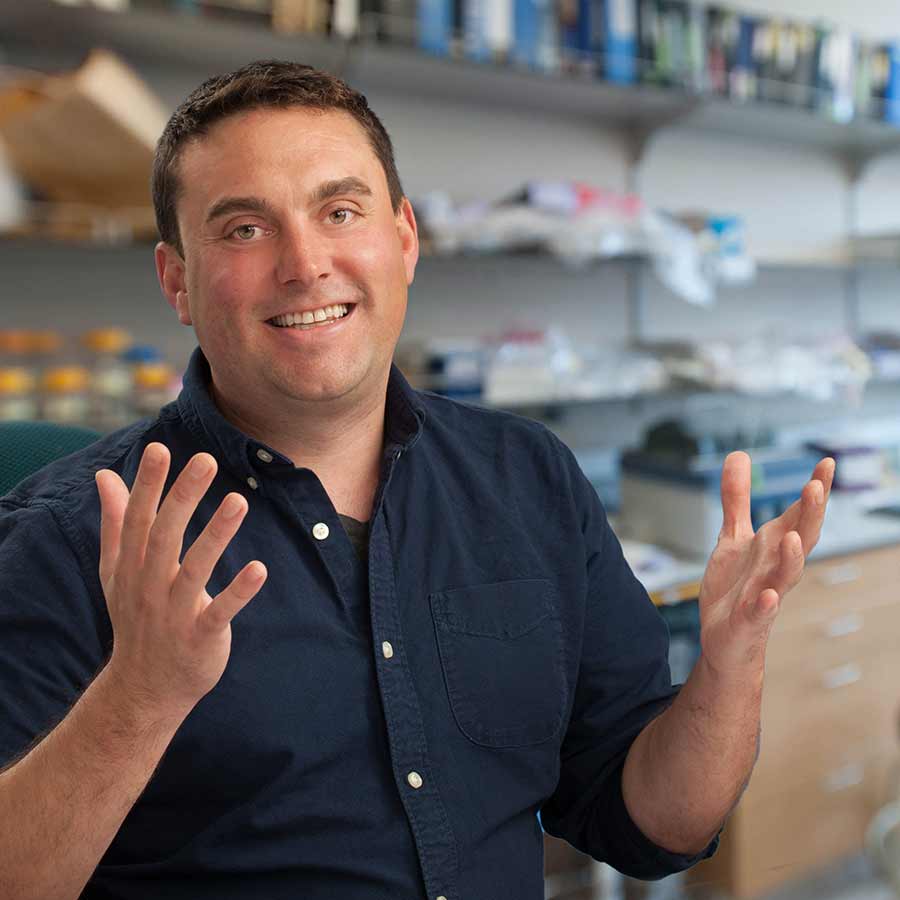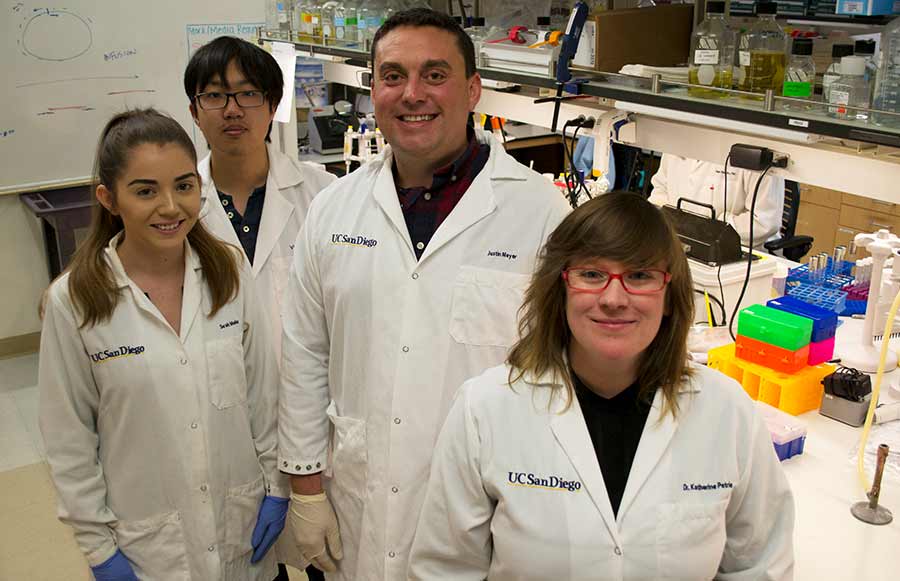By:
- Mario C. Aguilera
Published Date
By:
- Mario C. Aguilera
Share This:
Dissecting COVID-19: Biology Professor Opens Infectious Disease Course to Public Audiences
Podcasted class on UCTV and other outlets to analyze the biological roots and spread of coronavirus

Division of Biological Sciences Assistant Professor Justin Meyer.
Biological Sciences Assistant Professor Justin Meyer oversees a laboratory that specializes in the evolution of viruses and the natural processes that hasten their spread. He grows viruses in petri dishes and studies them as they evolve in real time, every so often watching them mutate onto new species.
COVID-19 is giving Meyer and his students an unprecedented opportunity to analyze the spread of a society-changing pandemic in real time; now these insights are being made available to public audiences. Meyer’s spring 2020 course, “Evolution of Infectious Diseases,” will be available here on UCTV and other public platforms.
While the class typically includes a final lecture discussion of epidemics in the news—in recent years Zika, Ebola and antibiotic resistance—Meyer will adapt his upcoming class to analyze the latest COVID-19 developments as they unravel. He plans to start each lecture in the upcoming course with an update of the COVID-19 spread and a discussion of how evolutionary biology concepts relate to the ongoing pandemic.
“The COVID-19 pandemic is clearly a defining moment of our lifetimes, as it challenges individuals and societies to work together to slow the spread of this devastating disease. I am pleased that Justin Meyer’s course will be available to a broad audience, as he is well-suited to provide unique insights into COVID-19 as the disease evolves in real time,” said Kit Pogliano, dean of UC San Diego’s Division of Biological Sciences. “I encourage everyone to follow his course through the spring, so you can have a (virtual!) front-row seat as he presents new developments in this rapidly changing outbreak.”

Image by iStock.com/inkoly
Meyer’s course typically covers the spread of pathogens and related concepts in evolutionary biology, with a focus on innovations that can be used to manage disease. He also covers the need to consider evolution when developing treatments, since future therapies will have to include comprehensive strategies that go beyond treating disease and also factor the evolutionary potential of pathogens.
Meyer has been teaching the class, one of the largest of its kind taught in higher education, since 2016. The upper-division course covers contemporary ideas and data, and isn’t anchored with a textbook since modern infectious disease research is exploding with new ideas and innovative technologies to understand them.
Only a few short months ago when Meyer began to prepare to teach the spring class, he had no idea of the relevance the course would come to embody.
“I may change some of the subjects in case there’s new information on COVID-19 and there is more relevant material to go over,” said Meyer. “For example, if therapies are discovered for COVID-19, then I’ll keep in the lectures aspects of drug resistance evolution. However, if there’s breaking news on a vaccine, I would give a lecture on evolutionary strategies to optimizing vaccine efficacy.”

Meyer lab members (2018, left to right) Sarah Medina, Victor Li, Justin Meyer and Katherine Petrie.
Meyer plans to keep some of his core course content, such as the rising threat of antibiotic resistance, which he warns will continue to emerge as a societal threat from a bacterial perspective.
“My job is to capture the student’s attention and cover topics that are emerging in importance,” said Meyer, who sees his upcoming class as an important vehicle to reach a vast audience. “I’m an educator, so the more people that I can educate, the better. Most people have a sense that they want to contribute in some way in dealing with this pandemic. I’m not a doctor so I think my most important contribution is to educate.”
Meyer will participate in a Zoom-based roundtable discussion, “A Deep Look into the Biology and Evolution of COVID-19,” during a special program on UCTV debuting by April 9. The latest coronavirus updates and information for the UC San Diego community are available at: coronavirus.ucsd.edu.
Share This:
You May Also Like
Stay in the Know
Keep up with all the latest from UC San Diego. Subscribe to the newsletter today.



